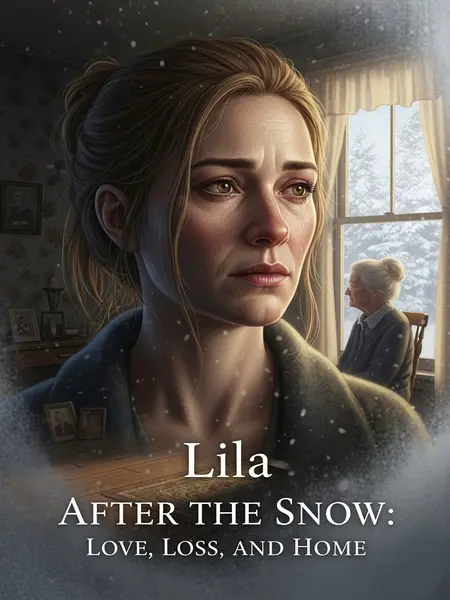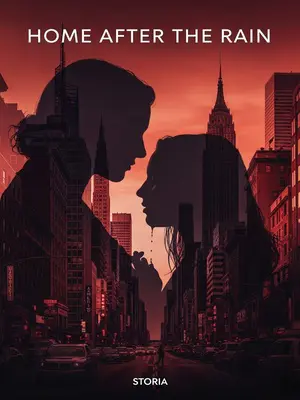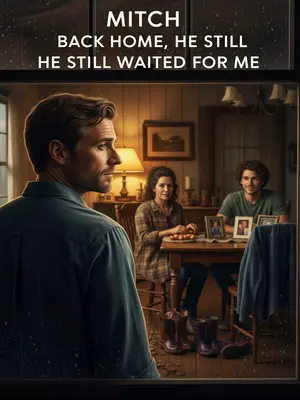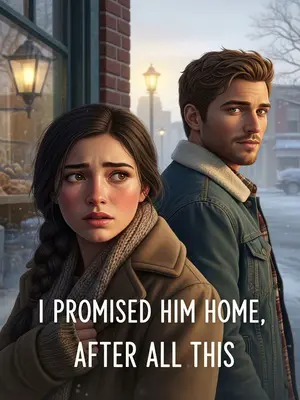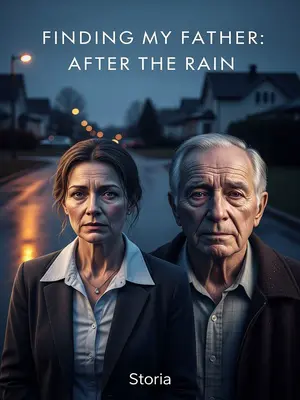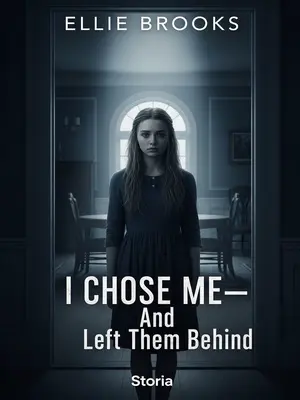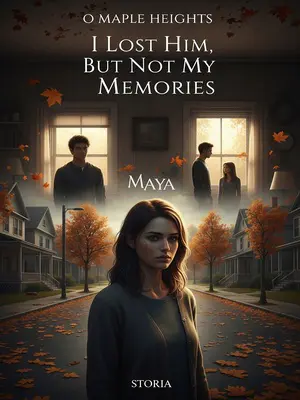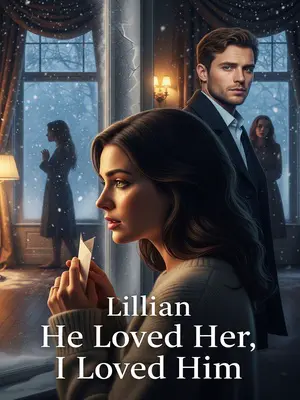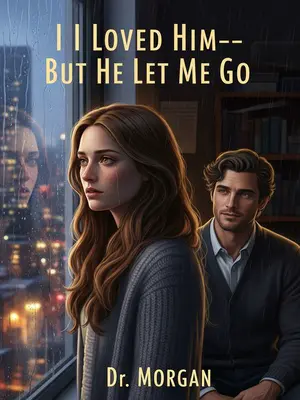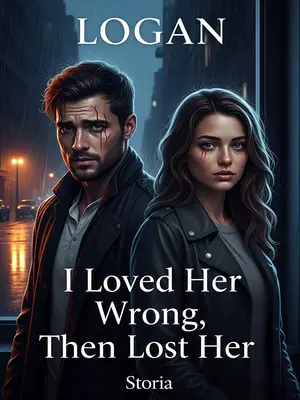Chapter 1: The Day Spring Stopped
Grass pushed up through the thawing earth. Robins darted overhead. April in Maple Heights—alive, bright, bursting with promise.
The air was fresh, carrying that special sweetness you only get after a long Ohio winter. You could almost hear the ground let out a sigh—finally free as the frost let go. The robins, bold and noisy, strutted across lawns like they owned the place. Honestly, every breeze carried the scent of wet dirt and hope. Maple Heights in April always felt like it was waking up from a dream, stretching toward the sunlight.
The day I brought Dad’s body back to Maple Heights, the weather was perfect. For a second, I just sat there, stunned by the weight of it all, not quite ready for what was coming next.
Sunlight poured through the windows of the hearse as we drove down Main Street, and for a moment, I hated how the world could look so beautiful on a day like this. The sky was a bright, endless blue—the kind that made you want to roll the windows down and let the wind tangle your hair. But all I could think about was the casket in the back, and how wrong it felt for spring to just keep rolling on when my whole world had stopped.
No, that’s not right. Maple Heights isn’t even the same place anymore—the county sign says Silver Hollow now.
They changed the name after the flood, said it was a fresh start. Still, every corner held echoes of the past: the old grocery where Dad bought licorice for me, the faded mural on the school wall, the cracked sidewalk out front. No new sign could erase what came before. Not for me, anyway.
I stood dazed in the big front hall, surrounded by faces I barely recognized.
The house smelled faintly of lemon polish and something sweet—maybe coffee cake. Aunts and uncles milled about. Neighbors I hadn’t seen since high school graduation. People who’d known Dad their whole lives, but barely knew me anymore. Their voices blurred together. Honestly, all those condolences sounded like static in my ears. I clutched the edge of the entryway table, trying to anchor myself in the swirl of grief and unfamiliarity.
“...Lila? Lila!”
Caleb called my name a couple times before I blinked and came back to myself. “...Huh?”
His hand kind of hovered near my shoulder, like he wasn’t sure if he should touch me or not. Caleb had always been the steady one—now his eyes were soft with worry, like he was afraid I might shatter right there on the hardwood. I realized he’d probably been talking for a while, and I’d missed every word. I just nodded, hoping it was enough. The ache in my chest made it hard to breathe.
He looked at me with that pitying expression I’d seen too much of lately. Maybe he’d said something; I just nodded along, numb. In the end, I handed over the remaining half of Dad’s old sheriff’s badge to Caleb and asked him to look out for Dad’s deputies.
The badge was heavy in my palm, the metal worn smooth from years at Dad’s side. Passing it to Caleb felt like letting go of the last piece of the past. I tried to keep my hand steady, but my fingers trembled. “Do right by them,” I said, my voice barely more than a whisper. Caleb just nodded, eyes shining, and I knew he understood.
Right now, whatever the history books say, my conscience is clear.
Maybe someday, when people talk about what happened in Maple Heights—Silver Hollow—they’ll remember Dad for who he really was. For now, I’ve done all I can. I have to believe that’s enough.
...
Dad was still waiting outside the church doors. Travis came to see me off, apologizing over and over.
His voice was raw, words tumbling out like he could somehow talk his way back in time and fix it all. If only he could. The sun cast long shadows across the parking lot, and the church bell tolled, heavy and solemn. I felt hollowed out, like I’d been scraped clean on the inside.
“Go home, Travis.” I stopped, turned to look at him. “...I never blamed you.”
His face crumpled, tears slipping down his cheeks as he tried to catch his breath. Honestly, for a second, I remembered us as kids, catching fireflies in the yard, before the world got complicated. I meant what I said—I really did. But I couldn’t give him what he wanted: forgiveness that would make it all okay.
With that, I turned and walked away, not caring how his sobbing echoed behind me.
The sound followed me down the steps, but I didn’t look back. The door banged shut behind me, and the world outside was too bright, too loud. I kept walking, arms wrapped tight around myself, wishing I could leave my grief behind as easily as I left Travis.
I don’t blame him, not really.
Some things just happen, no matter how hard you try to stop them. Guilt’s a heavy thing, but it’s not always fair.
But right now, I just can’t see him.
Maybe someday, when the ache isn’t so sharp, we’ll talk again. But not today.
A church volunteer led me to the Song family’s new house in Silver Hollow. The closer we got to Grandma and Grandpa, the heavier my heart felt. I didn’t know how to face them, and even less how to face Uncle Ben.
The walk felt endless. Every step tightened the knot in my stomach. I kept my eyes on the sidewalk, counting the cracks, trying to hold myself together. The house came into view, white paint peeling a little at the edges, the porch swing creaking in the wind. It looked smaller than I remembered, like grief had made it smaller somehow.
For a moment, I was so scared I wanted to run. But I couldn’t.
My feet rooted to the spot, memories swirling around me—Grandma’s cinnamon rolls, Grandpa’s booming laugh. I wanted to turn and bolt, but I took a shaky breath and kept moving. I owed them that much.
I’m grown now. I have to carry my weight like an adult.
I squared my shoulders, forcing myself to remember that I wasn’t a child anymore. The world doesn’t stop for anyone, and neither could I.
But the moment I saw Grandma and Grandpa, my courage crumbled.
They sat together in the living room, hands clasped, faces drawn with worry and exhaustion. I hadn’t seen them in so long, and the sight of them—so small, so fragile—knocked the air from my lungs. I bit my lip, fighting back tears.
They looked so old now—too old to stand without help. When did that happen? Just three years ago, when we left Toledo, they were both healthy. Why was Grandma in a wheelchair now, and Grandpa leaning on a cane?
Their hair was whiter than before, skin paper-thin. Grandma’s hands trembled as she reached for me, and Grandpa’s back was stooped, his cane tapping softly on the floor. Time had crept up on them while I was gone, and the guilt of my absence pressed down hard.
Please, no, no. Don’t let life be so cruel to them.
My knees buckled, and I collapsed in front of Dad’s casket, lost for words.
The room went quiet. All I could hear was my own ragged breathing. The casket gleamed in the afternoon light, and I pressed my forehead to the cool wood, searching for something—anything—to say. But the words wouldn’t come.
Grandma’s eyes were red, her voice breaking with sobs.
Her hand reached for mine, grip surprisingly strong. “My sweet girl,” she whispered, her voice thick with grief. Tears streamed down her face, and I realized I’d never seen her cry like this before. It shattered me.
I watched Grandpa shuffle over, his steps shaky, hand trembling on his cane. He pressed his wrinkled face to Dad’s casket, patting it gently, as if he could still reach Dad’s shoulder.
He murmured something soft, almost like a lullaby. The air was thick with sorrow, the kind that seeps into your bones and never really leaves. I watched the man who’d always been my rock break down, and it scared me more than anything.
“Sleep now, sleep..."
His words floated in the hush, a prayer and a goodbye all at once. He stroked the casket like he used to smooth my hair after a nightmare, his touch gentle and full of love. The room felt suspended in time.
“Good girl, you’ve been through so much all these years.”
Grandpa’s eyes were blurred with tears, but his voice was as gentle and kind as always. He reached out and stroked my cheek with his dry, weathered hand.
His thumb brushed away a tear, and I leaned into his palm, craving comfort. For a moment, I was five again, safe in his arms, the world outside forgotten.
“...Lila.”
“Thank God—thank God you’re still here.”
My eyes burned, sorrow crashing over me. “Grandpa...”
His arms went around me, holding me steady as I tried to catch my breath. I wanted to say so much, but the words tangled in my throat. All that came out was a broken sob.
Sometimes I wondered why it wasn’t me who stayed behind at Black Pine Ridge.
The question haunted me, especially at night when the world was quiet and the guilt crept in. I’d replayed every choice, every moment, searching for a way to rewrite the past. But there was never an answer.
Every day since Dad and Ethan left, I’d lived with guilt and regret, always thinking that if I’d just been more careful, if I’d stayed with them, maybe nothing would’ve happened.
Regret gnawed at me, a constant ache. I imagined a thousand ways things could have gone differently, but none of them brought Dad or Ethan back. The weight of what-ifs threatened to drown me.
But Grandpa kept saying, thank God I survived.
He squeezed my hand, his voice steady despite the tears. “You’re here, Lila. That’s what matters.”
Ever since Dad died in the line of duty, I hadn’t shed a single tear. But now, hearing Grandpa say “thank God,” I couldn’t hold back anymore. I wanted to break down and sob.
The dam inside me cracked, grief welling up so strong I thought it might sweep me away. I bit my lip, trying to hold it in, but my shoulders shook with the effort.
But I can’t cry. Not here, not now. I had to hold it together. For Grandpa. For Grandma. For everyone who still needed me. I swallowed the sobs, forcing myself to breathe.
Grandpa is old now, and I’m not a kid anymore.
I straightened up, wiping my cheeks. If he could keep going, so could I.
“Grandpa—” My voice was heavy with exhaustion. “I’m so tired... I’m really so tired, Grandpa. Can I rest for a while?”
The words slipped out before I could stop them. The exhaustion was bone-deep, the kind that no amount of sleep could fix.
“...Of course.”
Grandpa cupped my face, his smile shaky but warm, his eyes red. “Lila, you rest as long as you need.”
He kissed my forehead, his touch warm and familiar. “We’ll be right here when you wake up.”
I closed my eyes, leaning against Dad’s casket, finally at peace.
The world faded away, and for the first time in weeks, I let myself rest. The ache in my chest eased, just a little. I drifted, half-dreaming, wrapped in the love of my family.
Dad, I’ll just rest a little. Just a little. When I wake up, I’ll keep being the grown-up I’m supposed to be.
The winds through Silver Hollow have blown away old grudges and bad blood. No more will people starve or burn furniture just to keep warm. After years of struggle, the town can finally heal.
The neighbors brought casseroles and warm bread, the church bells rang on Sunday mornings, and the school playground echoed with laughter again. Silver Hollow was starting to remember what it meant to be a community. The scars would always be there, but hope had taken root again.
But my poor Grandpa and Grandma—after all they’ve suffered, Heaven still shows no mercy.
Some nights I lay awake, listening to Grandpa’s soft snores and Grandma’s wheezing breaths, wishing I could bargain with fate. They’d given so much—why couldn’t they have a little peace?
In the end, it’s always the old who must bury the young. That’s the cruelest truth, the one no one says out loud. It never gets easier, no matter how many times you live through it.
Grandpa and Grandma, in the end, had to lay their last child to rest.
The silence in the house after the funeral was heavy, broken only by the ticking of the old clock in the hallway. Every creak of the floorboards was a reminder of who was missing.
...
